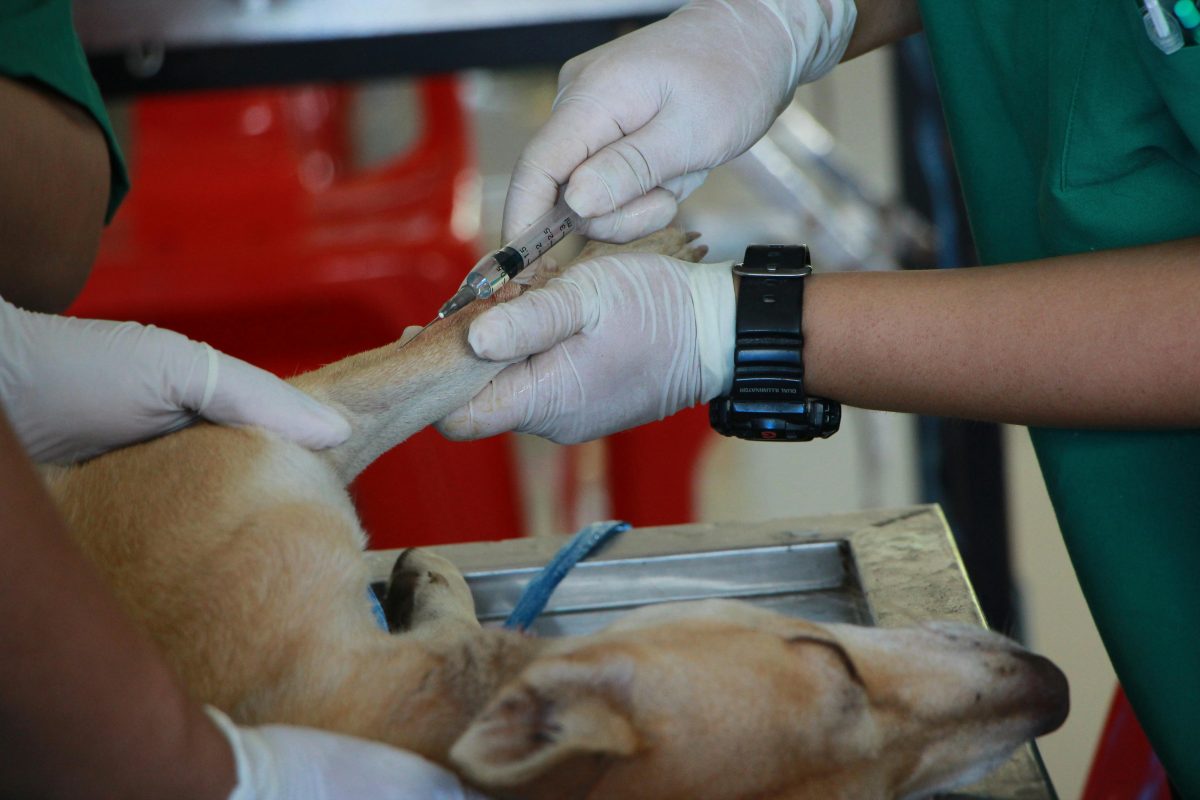Neuter And Spay
Neutering a Senior Dog: Risks and Considerations in 2024
Neutering a senior dog is a significant decision that requires careful consideration of various factors. In this comprehensive guide, we’ll delve into the risks and considerations associated with neutering older dogs and provide a holistic understanding.

Introduction
Neutering, also known as spaying (for females) or castration (for males), is a common surgical procedure performed on dogs to prevent reproduction. While neutering offers several benefits, it’s crucial to assess the risks and considerations, especially when dealing with senior dogs.
Neutering Senior Dog
Neutering a senior dog involves unique considerations compared to younger counterparts. While it can help mitigate certain health issues and behavioral problems, it also poses risks that pet owners should be aware of.
Risks of Neutering Senior Dog
Neutering, like any surgical procedure, carries inherent risks, particularly for older dogs. Common risks include:
- Anesthesia Complications: Senior dogs may have underlying health conditions that increase the risk of complications during anesthesia.
- Delayed Healing: Older dogs may take longer to heal post-surgery, increasing the risk of infections and other complications.
- Hormonal Imbalance: Neutering can disrupt hormonal balance, potentially leading to weight gain, urinary incontinence, and behavioral changes.
Considerations for Neutering Senior Dog
Before proceeding with neutering, consider the following factors:
- Overall Health: Evaluate your dog’s overall health, including any existing medical conditions, to assess their suitability for surgery.
- Behavioral Issues: Neutering can help address certain behavioral issues, such as aggression and roaming, but it may not eliminate them entirely.
- Veterinary Consultation: Consult with your veterinarian to weigh the benefits and risks based on your dog’s individual circumstances.
Best Age to Neuter Senior Dog
Determining the best age to neuter a senior dog requires careful consideration of various factors, including the dog’s breed, health status, and lifestyle.
Neutering Senior Dog with Health Condition
Neutering a senior dog with pre-existing health conditions, such as arthritis or heart disease, requires extra caution. Consult with your veterinarian to assess the risks and benefits based on your dog’s specific condition.
Senior Dog Recovery After Neutering
Senior dogs may experience a longer recovery period after neutering compared to younger dogs. Provide ample rest and follow your veterinarian’s post-operative care instructions diligently to ensure a smooth recovery.
Alternatives to Neutering Senior Dog
In some cases, alternatives to traditional neutering may be considered, such as hormone therapy or behavior modification techniques. Discuss these options with your veterinarian to determine the most suitable approach for your dog.
FAQs About Dog Surgery Suits: Answering Your Most Common Questions
Benefits of Neutering Senior Dog
While there are risks involved, neutering senior dogs also offers several benefits:
- Prevention of Reproductive Issues: Neutering eliminates the risk of unwanted pregnancies and reduces the likelihood of certain reproductive cancers.
- Behavioral Improvement: Neutering can help curb undesirable behaviors, such as marking and aggression, promoting a calmer demeanor.
- Population Control: By neutering your senior dog, you contribute to controlling pet overpopulation, thereby reducing the number of animals in shelters.
Veterinarian Consult Neutering Senior Dog
Your veterinarian plays a crucial role in the decision-making process regarding neutering senior dogs. Seek their professional advice to make informed choices based on your dog’s health and individual needs.
Is it Safe to Neuter an Overweight Senior Dog?
Neutering an overweight senior dog presents additional challenges due to increased surgical risks and potential complications.
Neutering a Senior Dog with Incontinence
Senior dogs may be more prone to urinary incontinence after neutering due to hormonal changes. Discuss preventive measures and management strategies with your veterinarian to address this issue proactively.
What is the ideal age to neuter a senior dog?
The ideal age for neutering a senior dog varies depending on factors such as breed, health status, and behavioral considerations. Consult with your veterinarian to determine the best timing for your dog
Are there any alternatives to traditional neutering for senior dogs?
Yes, alternatives such as hormone therapy and behavior modification techniques may be considered for senior dogs. Discuss these options with your veterinarian to explore the most suitable approach.
How long does it take for a senior dog to recover after neutering?
Senior dogs may require a longer recovery period compared to younger dogs. It’s essential to provide ample rest and follow your veterinarian’s post-operative care instructions diligently to ensure a smooth recovery.
Can neutering a senior dog help with behavioral issues?
Neutering can help curb certain behavioral issues, such as marking and aggression, but it may not eliminate them entirely. Consult with your veterinarian to determine the potential impact on your dog’s behavior.
What are the risks associated with neutering an overweight senior dog?
Neutering an overweight senior dog poses increased surgical risks and potential complications, such as delayed healing and anesthesia-related issues. It’s crucial to assess these risks carefully before proceeding with surgery.
How can I manage urinary incontinence in a senior dog after neutering?
Discuss preventive measures and management strategies with your veterinarian, which may include medications, dietary changes, and behavioral modifications to address urinary incontinence effectively.
Conclusion
Neutering a senior dog requires thoughtful consideration of various factors, including health status, behavioral issues, and surgical risks. By weighing the benefits and risks in consultation with your veterinarian, you can make an informed decision that promotes your dog’s overall well-being.

